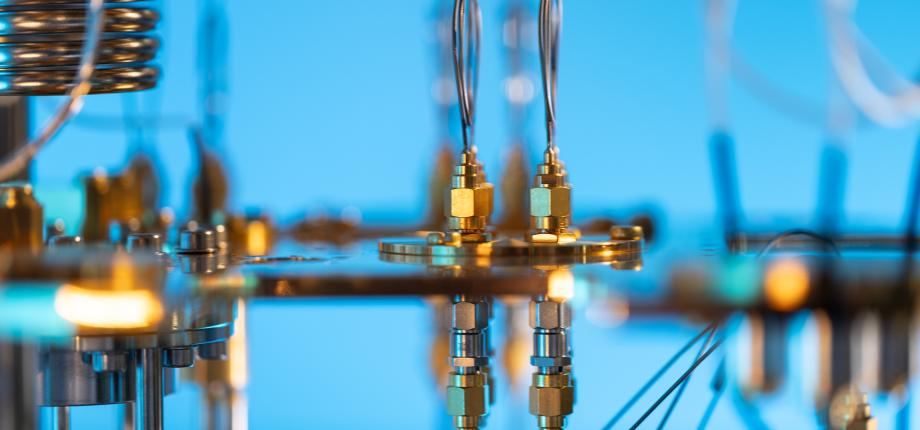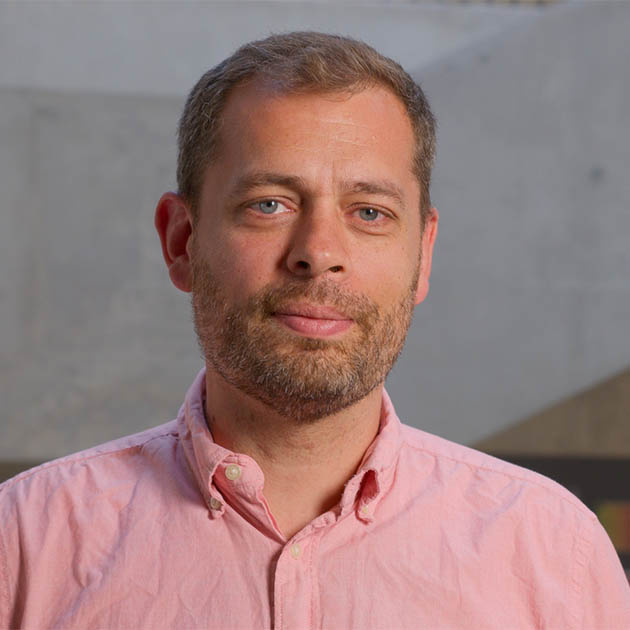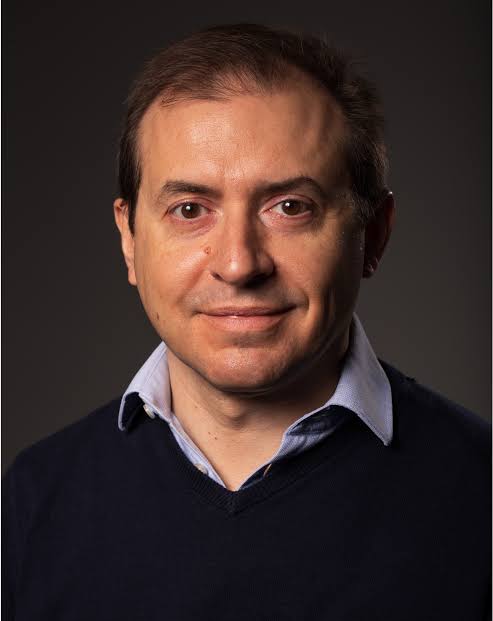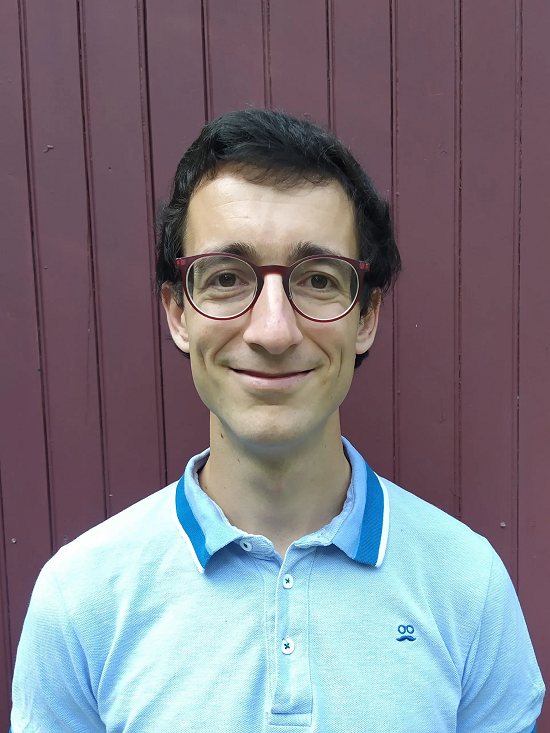Quantum-Saclay: bringing quantum together

Laboratories, students, industrialists, startups... the Plateau de Saclay is home to a veritable quantum ecosystem, and is a major player in the field. "Quantum-Saclay is an interdisciplinary research, training and innovation center that aims to federate all these forces. It structures them and gives them regional visibility", explains Laurent Sanchez Palencia, deputy director of the Quantum Saclay center and researcher at École Polytechnique's Center for Theoretical Physics (CPHT*).
Cutting-edge research
While quantum science is naturally evolving in the world of physics (optics, solid state physics, atomic physics, etc.), it is also spreading to other fields such as computer science. In the latter discipline, researchers are using quantum properties to build new types of algorithms or approach communications differently. This is the case of the Quriosity research team, jointly run by Inria, Télécom Paris and the Institut Polytechnique de Paris, which focuses on quantum information processing and the theoretical and experimental aspects of quantum communications. “For example, we're developing new communication systems for quantum networks, and we're also working on a hybrid cryptography combining classical computational and quantum methods,” explains Romain Alléaume, a lecturer and researcher at Télécom Paris, who works in the Information Processing and Communication Laboratory (LTCI**).
At the same time, other research teams at the Institut Polytechnique de Paris are working not only to understand the fundamental physics of certain materials, but also to control them in order to make them perform quantum tasks. “Although fundamental research remains our core business, we are also opening up to more applied research in order to establish a dialogue between players in the industrial and academic worlds,” explains Laurent Sanchez-Palencia. This orientation is all the more relevant given that some Plateau companies are developing quantum machines with several hundred qubits (editor's note: the qubit is the storage unit for quantum information, enabling a quantity of data to be processed that is out of all proportion to the conventional computer bit), calling on knowledge that is often confined to laboratories. "In this context, we collaborate with companies such as Eviden, EDF and Pasqal to process concrete cases - use cases - using these machines. These are often quantum simulators (a kind of simplified quantum computer) that enable us to understand the fundamental properties of interacting systems". In particular, these use cases aim to solve complex network optimization problems that companies such as EDF or SNCF would like to resolve. Quantum technology, with its phenomenal information encoding and processing capabilities provided by qubits, is opening up new perspectives.
A bridge between disciplines
However, these machines are not perfect systems and are sensitive to decoherence phenomena (editor's note: decoherence corresponds to the phenomenon in which a system interacting with its environment loses its quantum behavior). “The challenge is to propose quantum algorithms and protocols that will make the most of their capabilities, while taking into account their physical limits,” emphasizes Laurent Sanchez-Palencia.
This is where Marc-Olivier Renou comes in, and the PhIQuS research team (shared by Inria, LIX***, CPHT and CNRS) to which he belongs. The scientist bridges the gap between computer science and physics in the field of quantum information. “Our very special position makes us unique,” he stresses. Marc-Olivier Renou examines the quantum systems that it is possible to simulate, and the advantages that scientists can hope to gain from them from an informational point of view. "Dialogue between these two worlds is essential if we are to understand each other and develop topics of interest. There's no point in creating advanced physical objects or experiments if they don't have informational or algorithmic applications. Conversely, when developing algorithms, it's important to keep current technical possibilities in mind", adds the physicist.
This expertise has led Marc-Olivier Renou to take part, alongside the Interdisciplinary Centre for Defence and Security (CIEDS) and in collaboration with Nokias Belle Labs, in a project led by Quantum-Saclay on the limits of distributed computing. This technique concerns objects communicating together to find a protocol leading to a given collective behavior. "This is the case with drones or cell phones, for example. The aim is to understand, through very fundamental research, what happens when the functioning and communications between these objects are based on quantum principles".
Training the future quantum players
In addition to research, the expertise of teams at the Institut Polytechnique de Paris is paving the way for training courses funded by Quantum-Saclay's National Quantum Plan. Romain Alléaume, Marc-Olivier Renou and some twenty researchers and teacher-researchers are working together to build a Quantum Mathematics and Computer Science (QMI) Master 2, coordinated by Télécom Paris, CentraleSupelec, École Polytechnique and the Université Paris-Saclay "Our aim is to train graduates with 5 years of higher education in mathematics and computer science, to meet the needs of companies on the Plateau de Saclay. This program is a continuation of the Quantum Engineering specialization that Télécom Paris has been offering to its 3rd-year students for the past 8 years," explains Romain Alléaume. “In fact, many of our students go on to complete their theses and become part of the local ecosystem, with a solid added value in research, particularly in startups”. The Institut Polytechnique de Paris thus trains students, future scientists and future employees who are highly sought-after by laboratories and companies on the Plateau de Saclay.
The Quriosity team is also involved in the ARTeQ inter-institution diploma (coordinated by ENS Paris-Saclay) dedicated to research in quantum technologies. Romaine Alléaume and her colleagues contribute their expertise in quantum physics, computer science and cryptography to this gap year program, which is open to students at Master's level.
At the same time, École Polytechnique is offering its 3rd year engineering students a number of in-depth courses. A quantum science and technology track, part of the physics department, and a quantum computing track, part of the computer science department, have been created. “A PhD track also attracts the best students from M1 onwards in an integrated 5-year master-doctorate program, enabling them to immerse themselves rapidly in a research laboratory in the field,” emphasizes Laurent Sanchez Palencia.
In addition, Quantum-Saclay's member institutions are working together to create practical work that will give students access to specific experiments, such as the production of entangled photons or the measurement of Bell inequality violations. Last but not least, Quantum-Saclay funds calls for thesis projects, as well as laboratory internships. "It may seem trivial, but it's a way of attracting talent before a thesis. If the internship is interesting and goes well, the student will want to stay and enrich the community", concludes the CPHT physicist.

About Romain Alléaume
Romain Alléaume is a graduate of ENS Paris. He obtained his PhD from the University of Paris VI and ENS Cachan in 2004, on experimental quantum cryptography with single-photon sources. He was co-winner of the 2004 scientific prize awarded by La Recherche magazine. He then joined Télécom Paris to coordinate work on QKD networks (quantum key distribution - a technology involved in securing sensitive communications) carried out as part of the European SECOQC project. This led to the first demonstration of a QKD network in Europe. Romain Alléaume also co-founded the start-up SeQureNet in 2008, which developed the first commercial QKD product with continuous variables, Cygnus, released in 2012. He participated in two national projects on quantum key distribution, PROSPIQ (2006-2009) and SEQURE (2007-2010), as well as in the Franco-Canadian FREQUENCY project dedicated to fundamental research on quantum cryptography. Romain Alléaume then coordinated national and European projects, focusing on the security of QKD implementation (FP7 Q-CERT, 2008-2012) and the optical integration of QKD in telecommunications networks (French ANR Quantum-WDM, 2012-2015). He is also a member of ETSI's QKD industrial standardization group, and actively contributes to the international scientific and technical effort on QKD technology and quantum cryptography.

About Laurent Sanchez-Palencia
Laurent Sanchez-Palencia is CNRS Research Director at the Centre de Physique Théorique, Professor at École Polytechnique and Deputy Director of the Centre Quantum-Saclay. A graduate of the Ecole Polytechnique (1999), he holds a Master's degree in Quantum Physics from the École Normale Supérieure (2000) and a PhD in Quantum Physics from the Laboratoire Kastler-Brossel (2003). After a post-doctoral stay at the Hannover Institute of Theoretical Physics (2003-2004), Laurent Sanchez-Palencia worked at the Institut d'Optique for a dozen years (2004-2016) before joining the École Polytechnique in 2016. Here, he heads the Quantum Matter team, which he set up in 2006. His research focuses on the theory of N-body quantum systems, quantum simulation and ultra-cold quantum gases. His work on quantum gas theory has been awarded a Humboldt Fellowship (2003), an ANR Young Researcher Fellowship (2010), a European Research Council Fellowship (2011) and the Prix Leconte from the Académie des Sciences (2012). At École Polytechnique, Laurent Sanchez-Palencia teaches quantum optics and quantum information. He is also in charge of quantum development at the Institut Polytechnique de Paris.

About Marc-Olivier Renou
Marc-Olivier Renou is a theorist working in the field of quantum information science. His research interests include the study of quantum correlations, quantum networks, distributed quantum computing, device-independent quantum information processing and noncommutative polynomial optimization for quantum mechanics. Since February 2023, Marc-Olivier Renou has held a junior professorship at INRIA Saclay, affiliated with the Ecole Polytechnique's Centre de Physique Théorique (CPHT). He is also the co-creator of an INRIA project-team in quantum information theory, at the interface between physics and computer science. Previously, Marc-Olivier Renou was a Marie Curie fellow from 2020 to January 2023 (financed by Spain via the EU stimulus fund) and Early Postdoc.Mobility fellow (financed by Switzerland) at the Instituto de Ciencias Fotónicas (ICFO, Barcelona), in the quantum information theory group headed by Antonio Acín. He will carry out a long research stay at ETH Zürich in summer 2022, in the quantum information theory group headed by Renato Renner. He will complete his PhD in 2015-2019 under the supervision of Nicolas Gisin at the University of Geneva.
>> Marc-Olivier Renou personal webpage
>> Marc-Olivier Renou on Google Scholar
*CPHT : a joint research unit CNRS, École Polytechnique, Institut Polytechnique de Paris, 91120 Palaiseau, France
**LTCI : a research lab Télécom Paris, Institut Polytechnique de Paris, 91120 Palaiseau, France
***LIX : Computer Science Laboratory of the École Polytechnique, a joint research unit CNRS, École Polytechnique, Institut Polytechnique de Paris, 91120 Palaiseau, France













